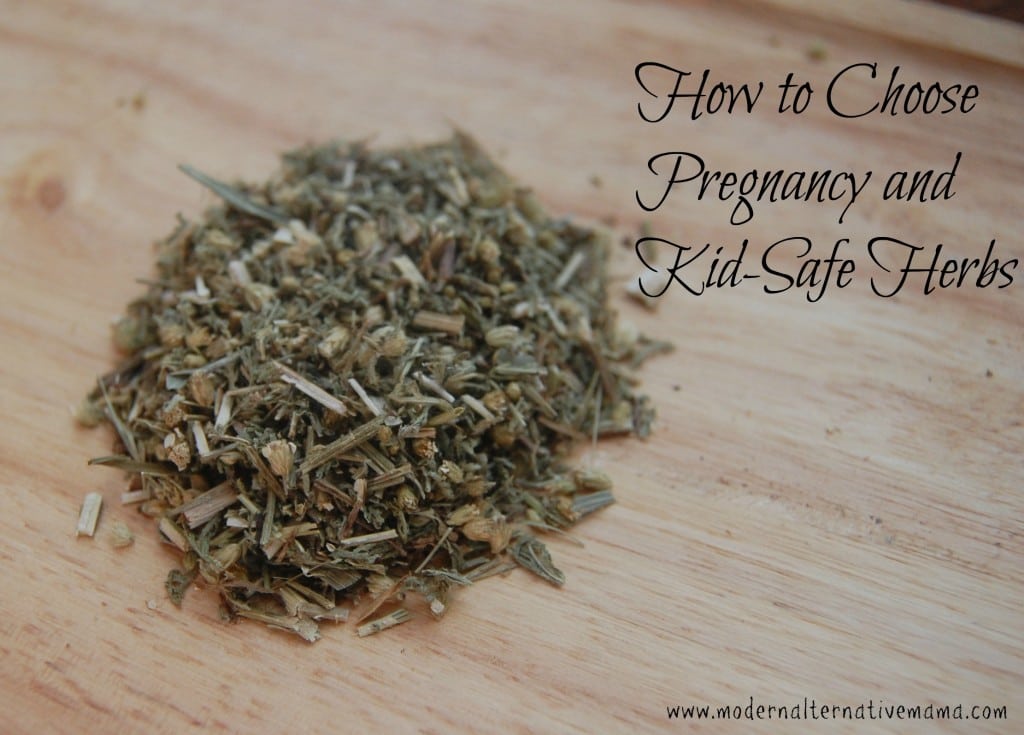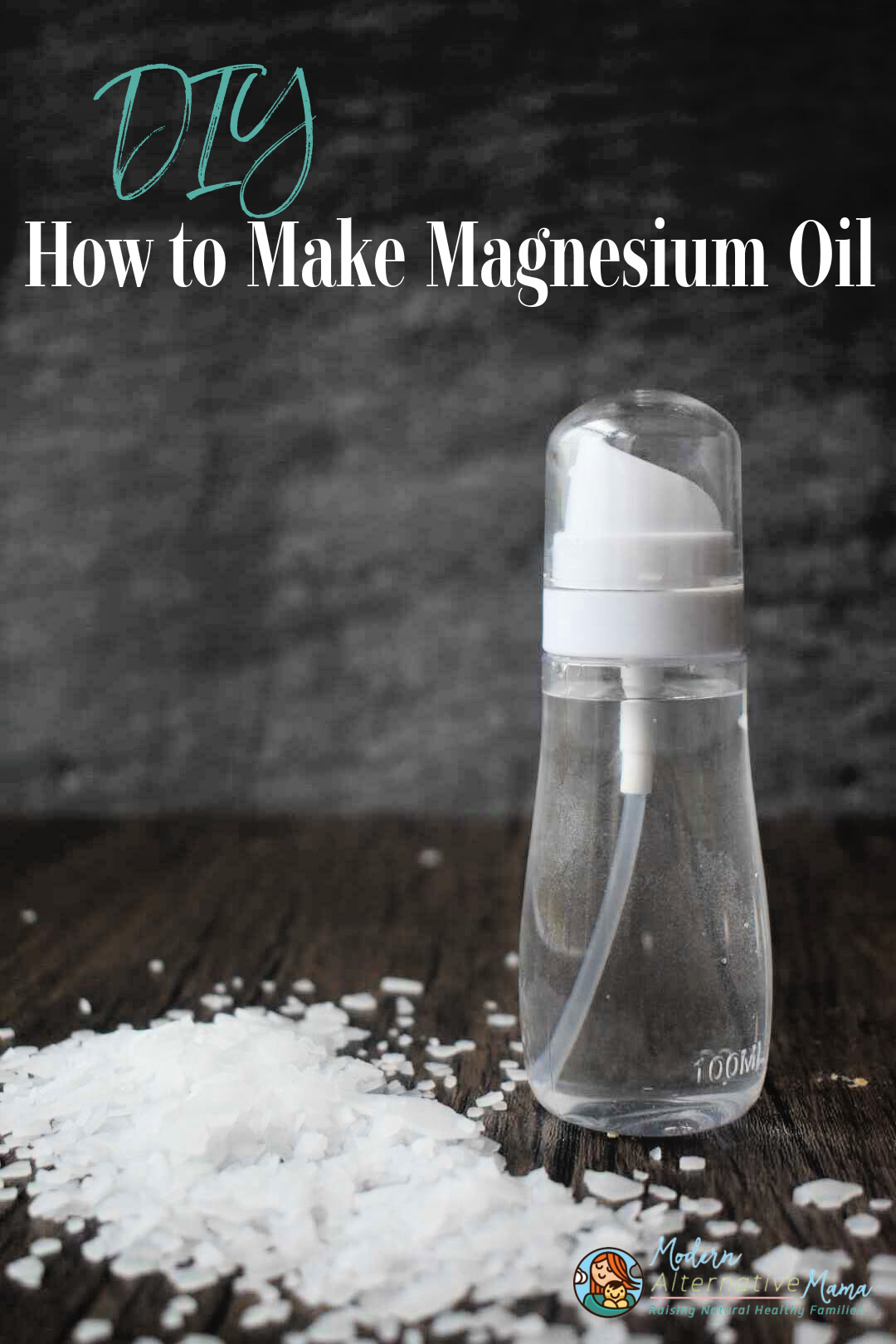Many moms want to know about pregnancy and kid-safe herbs (and for nursing). Here is a user-friendly guide on what they are — and how to use them!
Pregnancy and Kid-Safe Herbs
We get questions about herbal safety all the time, especially when it comes to pregnant or nursing women or young children. Many moms want to know — which herbs are safe?
I’m basically in that boat all the time — pregnant and/or nursing and I have young children. (And older ones now too!) Some herbs are safe for any age. Some are safe for kids over 1, or 2, or 6. Others are safe while pregnant and nursing…some are only safe while nursing, but not while pregnant. That can get confusing, quickly.
Typically, I only keep herbs that are safe for most people, most of the time around. A small handful that I use are not safe in pregnancy but are safe with young children and while nursing. If in doubt, use herbs topically only and in small doses, as this is usually safer than ingesting them.
But, let’s see if we can’t break down it down into a more user-friendly guide of pregnancy and kid-safe herbs.
Generally Safe Herbs
These herbs are safe for basically anyone — pregnancy, nursing, and kids of all ages. If you have specific health concerns or conditions, talk to your doctor before using any herbs, supplements, or medications.
Ginger
Ginger is an extremely safe and versatile herb. I prefer to use it fresh, either in a decoction (made by boiling slices of ginger in water for about 10 minutes) or by running it through my juicer. Ginger is anti-inflammatory (meaning it’s good for pain), it helps nausea or stomach upset (from colic, gas, overeating, stomach viruses, or motion sickness), and it’s good for colds and flu, too. It’s best in tea form for colds and flu, as the heat helps to clear the sinuses. It can be used as a tincture or capsules for other uses if you don’t like the taste of ginger.
Mullein
Mullein is a much less common herb, but it’s a great one for respiratory illnesses and also for promoting restful sleep. It’s usually my go-to for more serious colds because it helps get much-needed rest and it helps to clear congestion and promote better breathing. I prepare it as an infusion, putting a handful in a boiling water and allowing it to steep for 20 – 30 minutes before straining and sweetening lightly.
Turmeric
Turmeric is a common kitchen spice, but it’s also an excellent herbal remedy. It’s usually used in dried, powdered form. Turmeric is anti-inflammatory, which makes it great for pain, wounds, and more. Many adults take it frequently to help with headaches, arthritis, etc. Children can take it on occasion if they have growing pains, cuts or bruises, and we’ve even used it for poison ivy. This anti-inflammatory syrup is an easy way to take it. Or, these anti-everything pills.
Lavender
Lavender is a super popular herb. It’s excellent for relaxation and restful sleep, and it also helps with burns and soothing irritated skin. It can be used in a bath, in creams or salves, and it’s even edible. Many moms like to have the essential oil around, and some also keep the whole herb (I do). Lavender buds can be added to rice-filled heating pads for soothing scent — and these can be taken to bed with little ones to help them stay warm at night. (The heating pads are warmed in the oven or microwave and slowly cool through the night.) I add it to my headache and sore muscle salve.
Arnica
Arnica is for external use only, but it’s safe that way for basically anyone. It is used for bumps and bruises and can speed the healing of wounds. A simple arnica salve is a great thing to have on hand.
Red Raspberry Leaf
Red raspberry is an excellent herb for women. It helps to tone the uterus and other smooth muscles, which can reduce the risk of miscarriage, reduce morning sickness, reduce or eliminate menstrual cramps, make labor easier and faster, and more. It’s not specifically beneficial for children, but it isn’t harmful either — and many children like sharing mommy’s tea. Some sources say that it can help with bowel cramps in children. It’s best and most commonly used in tea form.
Nettle
Nettle is a “multivitamin” herb because it has such a high concentration of nutrients. It’s also beneficial for seasonal allergies in many. Making a simple, lightly sweetened tea from nettle is a great way to share it with the whole family — and it’s especially beneficial in pregnancy, too.
Oatstraw
Oatstraw is the green tops of the oat plant. If you are gluten-free, then you will need to choose your source of oatstraw carefully or skip it, as cross-contamination is possible. Oatstraw is very nourishing and helps to promote relaxation. It’s also very soothing for skin and can be used in a bath for itchy, irritated skin.
Usually Safe Herbs
These herbs are safe for nursing women and children over a year. They are not safe for pregnant women and may not be safe for infants.
Yarrow
Yarrow is an excellent herb for sore muscles, headaches, and fevers. It can be used for babies (and maybe pregnant women) in a bath or salve, but should not be used internally by this group. (Internal use is fine in older children and non-pregnant women.) I usually use it in salve form since it is fairly safe for anyone in that case. For a bath, often used for fevers, use a big handful of it and steep in boiling water for 30 – 60 minutes to create an infusion, then strain and pour it into a bath. Make tea with 1 tsp. in 1 cup of hot water, steeped for 5 – 10 minutes, or use in salves.
Fenugreek
Fenugreek is mostly known as an herb that increases milk supply — which it does. But it also helps to clear mucus from the body, making it valuable for people with colds! (But not safe for pregnancy.) I typically mix it a teaspoon or two with mullein and create a strong infusion and serve it very warm, which helps to clear up sore throats, congestion, and improve breathing and promote restful sleep.
Peppermint or Spearmint
Peppermint, spearmint and other “mint family” herbs (which includes catnip and lemon balm, both of which help to promote restful sleep and calm frayed nerves) are iffy during both pregnancy and nursing. Some women say they cause contractions or lower milk supply. Other women — including me — are not particularly sensitive to them in those ways and can use them during pregnancy and nursing without issue. Both mints are good for upset stomachs and headaches, and sometimes for fevers as they are cooling herbs. I like to add them to tea. If you’re not sensitive to them in pregnancy, they can be beneficial with morning sickness, too. Spearmint, which is lower in menthol, is less likely to cause a negative reaction (that is what I use).
There are certainly more herbs out there, but these are the main ones I use for my family. It’s easier to have a solid collection of herbs you use often than a ton of herbs you rarely use! Cheaper too. 🙂
What are your favorite pregnancy and kid-safe herbs?
SaveSave








Great little herbal article, thank you, it was very helpful to know I can take mullein. Someone suggested it for asthma, but I didn’t know if it was safe or not. There is so little reliable information, most of it is fear based.